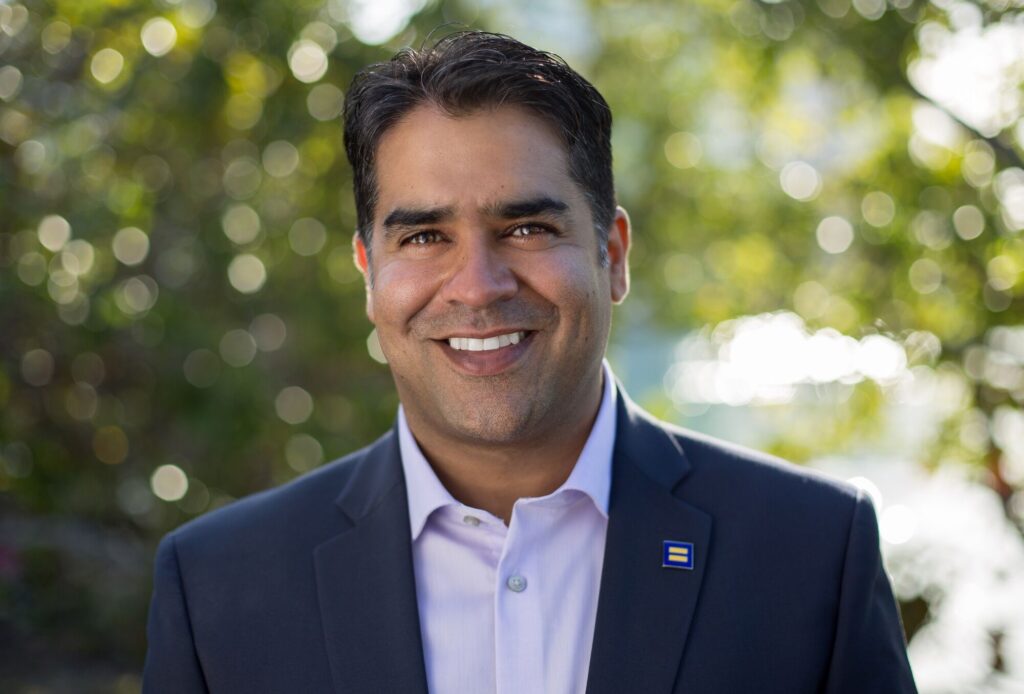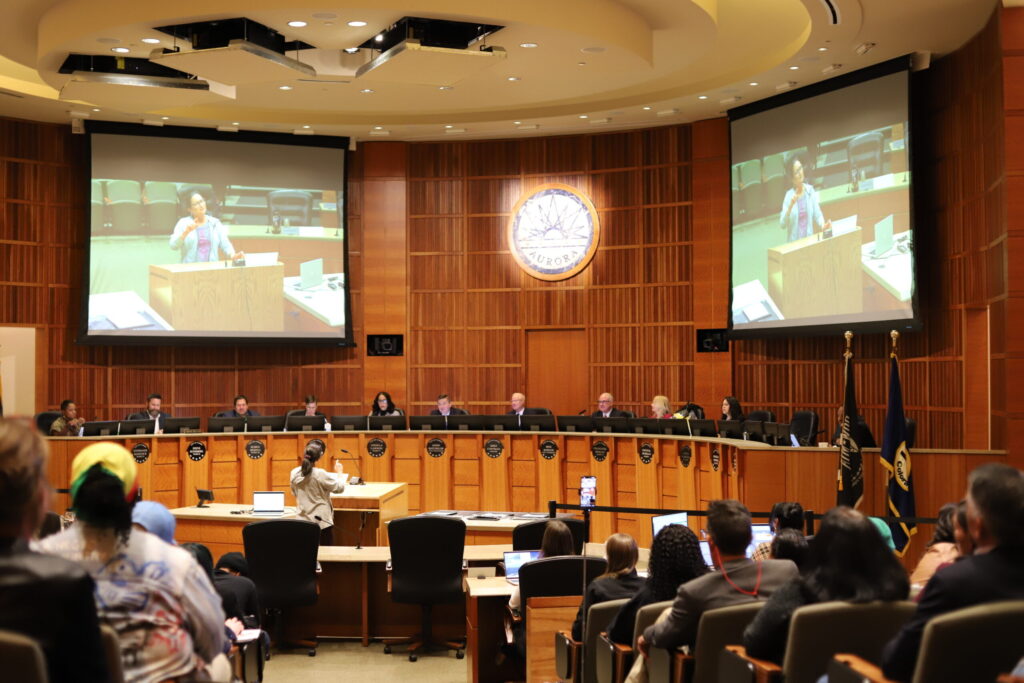El Paso County nonprofits receive nearly $9 million in federal ARPA funding for pandemic recovery
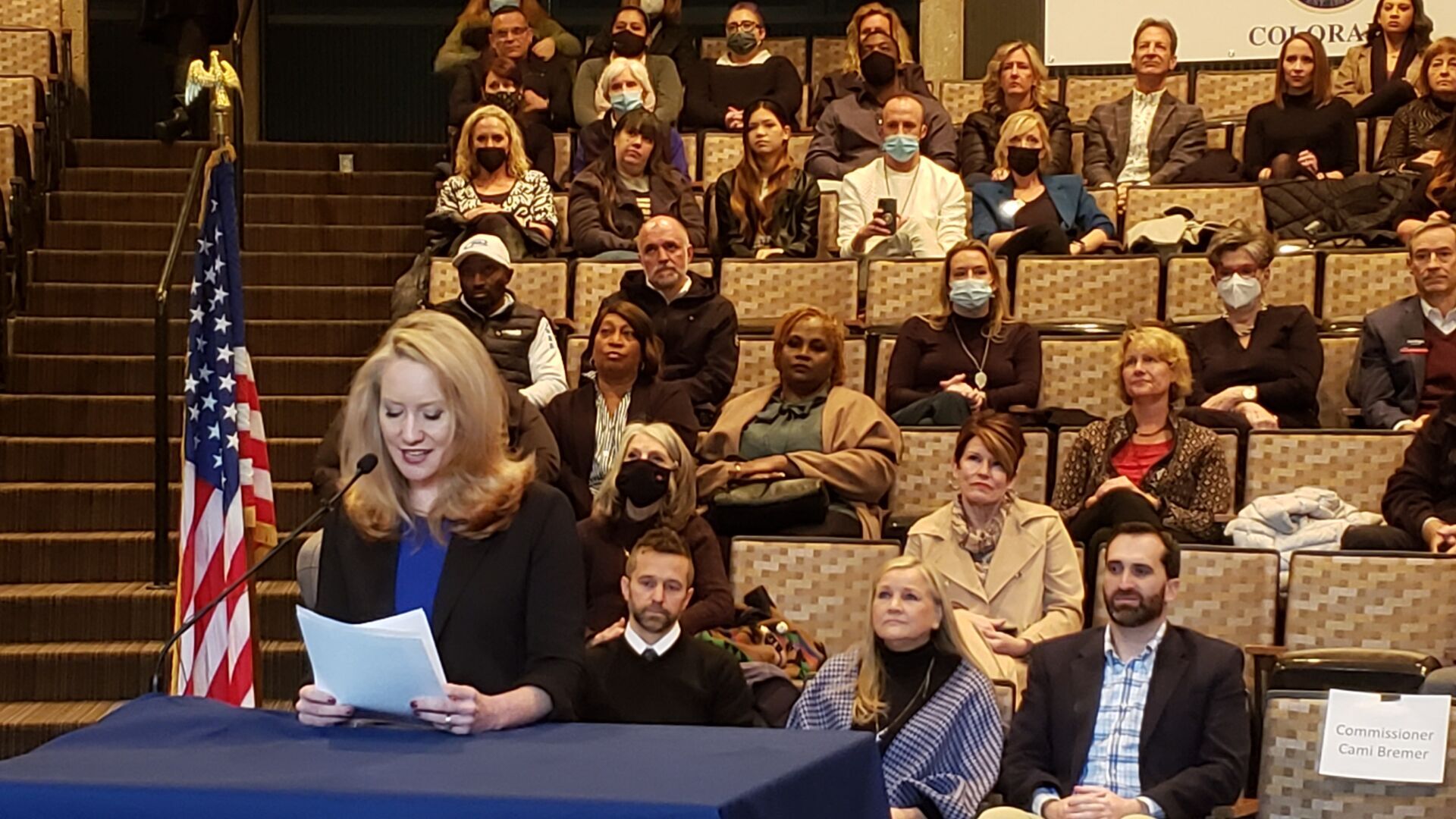
The COVID-19 pandemic has thrown life off kilter for nearly two years, leaving adverse physical, social, emotional and mental burdens in its wake.
To help El Paso County residents recover, 48 nonprofits that operate 50 regional programs spanning a wide gamut of public services collectively are receiving $8.95 million in federal stimulus money.
Community Impact Grant awards will have “an exponential impact” in helping the community remain strong and resilient, El Paso County Commissioner Cami Bremer said Thursday, in a ceremony announcing the winners.
“This grant is so important – it’s not just going to be a number to balance the fiscal reports but will have an impact on the lives of about 30,000 El Paso County residents,” Bremer told about 100 people who attended the ceremony.
Requests from Colorado Springs residents needing money to pay rent expected to continue this year
The grants represent a portion of the $139.9 million the county received from the federal American Rescue Plan Act. Monies also have been given to businesses and government services; awards for broadband infrastructure and water systems are pending.
Nonprofit recipients must spend the money on benefiting individuals and households negatively impacted by the pandemic, by creating new programs or expanding existing ones to respond to the needs brought about by COVID.
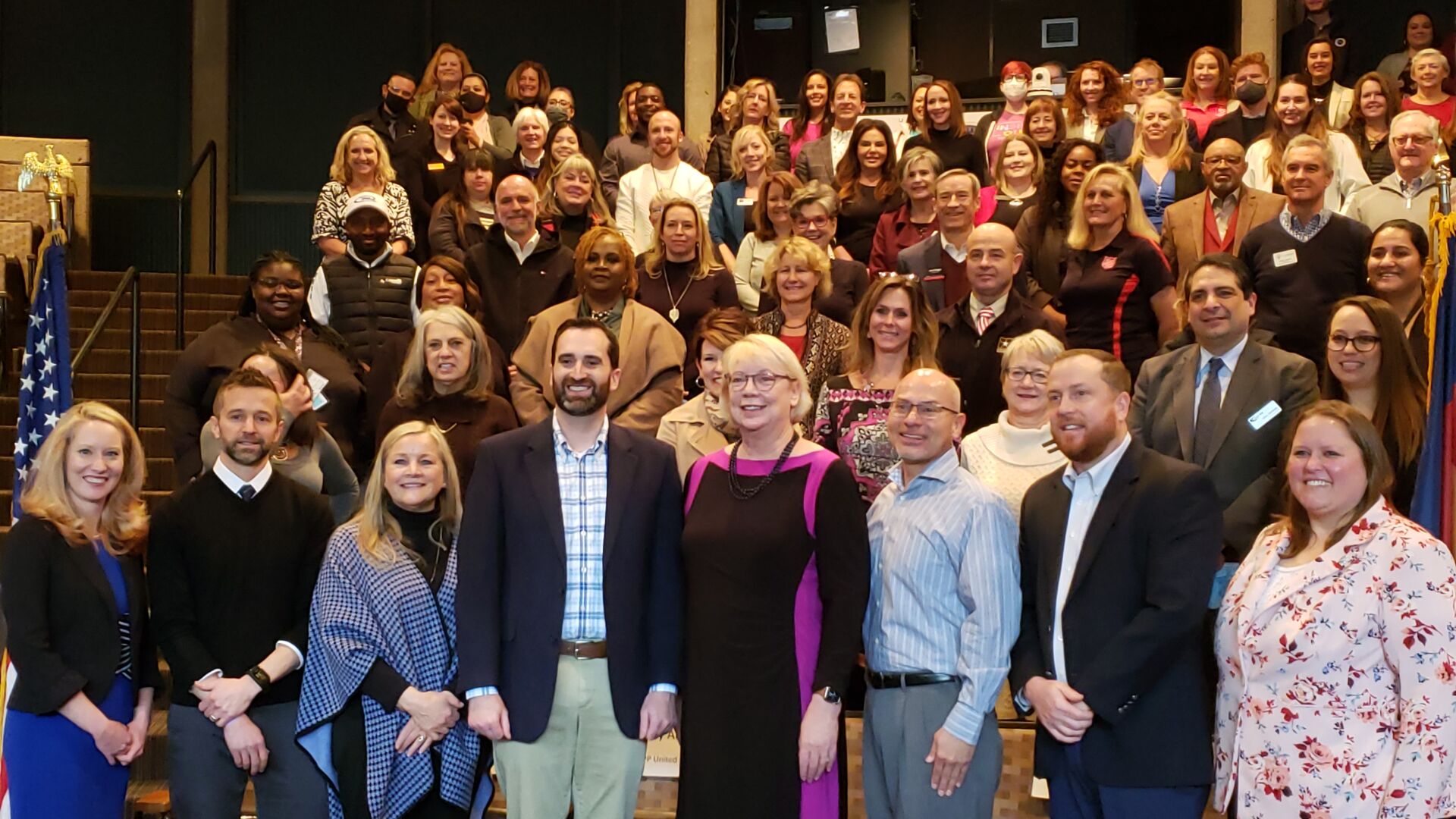
Programs funded in this go-round address counseling, substance misuse, mental and behavioral health, suicide prevention, employment assistance, financial and debt counseling or budgeting, legal aid to prevent eviction or homelessness, and food instability.
The funding covers programs that social-service agencies, homeless providers, churches, youth organizations and general charities offer for children, teens, adults and seniors.
Bremer said while it’s not the government’s job to provide the expertise in these areas, the county seeks to empower the agencies who specialize in such work to best assist the community.
Pikes Peak United Way, which this year is observing 100 years of operation in Colorado Springs, received $1.2 million, the largest allotment.
The grant will help build a new Family Success Center at Pikes Peak Elementary School in Harrison School District 2, said Pikes Peak United Way President and CEO Cindy Aubrey.
CEO of Colorado Springs-based early education nonprofit announces retirement after 33 years
Declining enrollment and a desire to equalize equity for elementary school students led to D-2’s decision to close Pikes Peak Elementary and Stratmoor Hills Elementary at the end of this academic year and repurpose the buildings, the district has said.
United Way will work with other agencies in town to provide county social services, literacy programs and possibly a food market at the building, Aubrey said. Assistance programs for the low-income neighborhood on Colorado Springs’ southeast side will adopt a whole-family approach to well-being, self-sufficiency and economic independence.
“This is a big vision for Pikes Peak United Way,” Aubrey said, but “it will have lots of community involvement.”
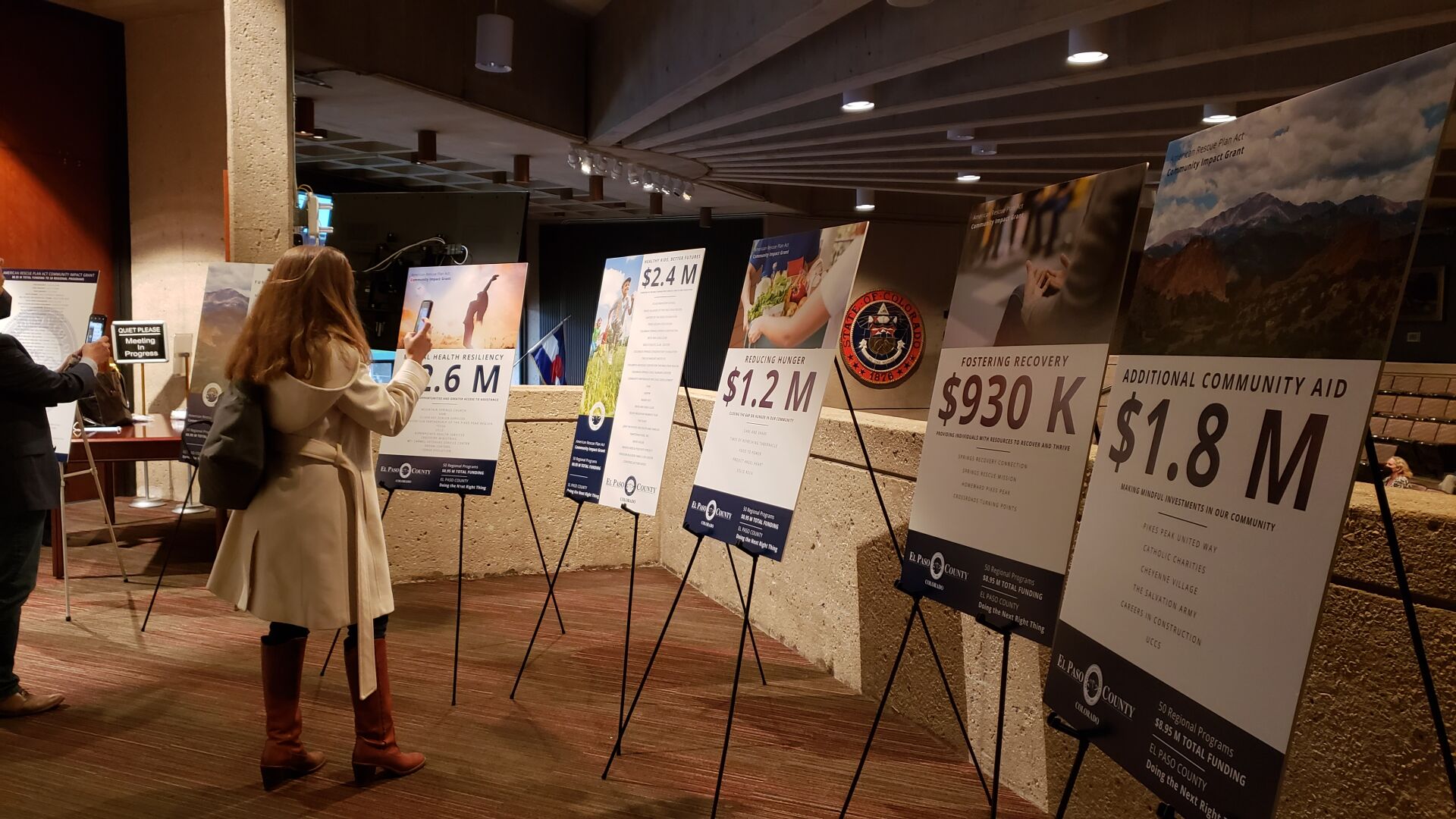
At a Jan. 4 meeting, Commissioner Holly Williams mentioned the potential for the center to break the cycle of generational poverty.
“To locate a new success center right in the areas where we need it the most is just a wonderful idea,” she said.
With its $700,000 grant, Care and Share Food Bank for Southern Colorado will buy food for more than 100 partner agencies in the county that circulate fresh, frozen and shelved staples for free to users of food pantries, homeless shelters, soup kitchens and benevolent church projects, said CEO Lynne Telford.
The funds also will help with transporting, delivering and distributing the food that’s given away, she said.
Care and Share works to provide “an easy and dignified experience,” Telford said, adding that “Care and Share belongs to the community – you support us, we serve you, and together, we fight food insecurity. Because no one should go hungry.”
Colorado Springs City Council finalizes utility rate decreases
The county received 75 applications for Community Impact Grant awards, representing $43 million in needs, said Nikki Simmons, controller.
Applicants and proposals were vetted and selected for the scope of people the programs would reach and the effects of the projects on daily lives, county leaders said.
A few fraudulent applications came through but were detected, said county spokesman Ryan Parsell. They appeared to be people just looking for government grants, without bona fide intentions or plans, he said.
Organizations will be held accountable for spending, he added, with proof of expenditures required, to “make sure the money will go to the places it’s supposed to.”
COVID worsened the mental health and well-being of about half of Colorado Springs residents who participated in a research study by Elevated Insights, said Kirk Woundy, associate executive director of the local office of NAMI, the National Alliance on Mental Illness.
The market research firm conducted the survey one year ago, and Woundy expects more people might say that’s the case now.
Many people feel exhausted from the pandemic’s ills and are worried, anxious, sad, depressed, frustrated and sorrowful, he said.
“These are challenges we’re all facing,” Woundy said, adding that the $154,580 his organization gets in grant funds will strengthen the no-cost mental health support it offers to individuals and families. An additional office worker and larger office space are among the improvements NAMI will undertake, he said.










